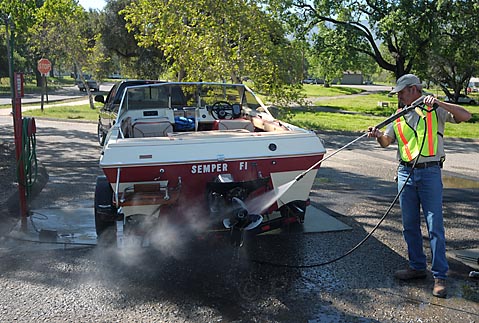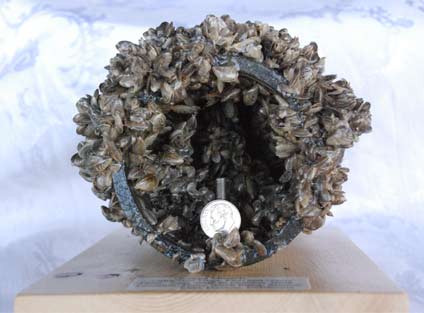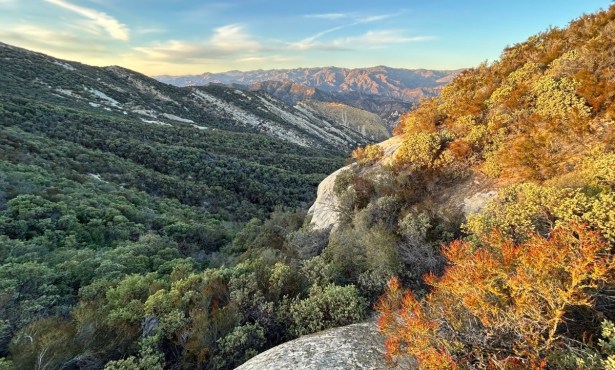Don’t Move a Mussel
Seminar on Preventing Invasive Species Spread Comes to Santa Barbara

Knowing is half the battle for the California Department of Boating and Waterways (DBW) as it continues to wage war with quagga and zebra mussel species. On June 16 at the Chase Palm Park Center, the agency will host the latest in a series of educational seminars that have occurred throughout the state during the last year to educate boaters about their role in combating aquatic invasive species. These mussels, as well as other invasive species, pose serious environmental and economic threats. The Department of Fish and Game (DFG) will be there to teach boaters how to effectively inspect their boats, recognize the mussel species, and prevent them from spreading.
The quagga and zebra mussels came from Europe in the 1980s and were first discovered in California in 2007, in the waters of Lake Havasu. Although they are typically the size of a fingernail, they can release more than 40,000 eggs in one reproductive cycle and tend to grow on hard surfaces like boat hulls, propellers, and underwater pipes.
They are labeled an invasive species for their abilities to aggressively take over habitats, alter the chemistry of the water, displace native species, and even transmit diseases that can be dangerous to humans. They are known to clog aqueducts and water delivery systems that can cost billions of dollars to repair. By clinging to boat propellers and hulls, the mussels increase the boat’s fuel consumption, which is harmful to both the economy and the environment. Marinas and boaters must also spend additional money to clean the boats and protect the infrastructures of the marinas.

In a cooperative effort that began nearly a year ago between several state and federal agencies, these seminars aim to make boaters a part of the solution by showing why they should care about inland lakes. Vivian Matuk, the Boating Clean and Green Coordinator, wants boaters, even if they are from a coastal area like Santa Barbara, to understand that all waterways are connected. “Eighty-five percent of boaters in California have trailerable boats to move them throughout the state,” she told The Independent. “We want to create a consciousness about water flow and break the mentality boaters have about boundaries.”
In order to give boaters a perspective of why they should care about the issue, the seminar will begin by going over the economic and ecological impact of invasive species. The DFG will follow with a lesson about invasive species, especially the quagga and zebra mussels. As well as teaching boaters how to identify the critters, they will demonstrate preventive techniques for both freshwater and saltwater species. The workshop will conclude with a hands-on inspection of a boat, in which participants can learn how to effectively inspect watercraft and fishing gear.
Since the seminars began a year ago, only one new infestation has been discovered, in San Diego County’s Lake Ramona in March 2009. Before this, the last infestation was in May 2008, in Orange County’s Rattlesnake Reservoir. There are now 20 known infestations in California, which can be located on the DFG’s Web site.
Border protection stations are also actively investigating vessels and are nearing 200,000 inspections. So far, they have found 325 cases of adult mussels growing on boats, successfully prevented that many new infestations.
The DFG tells users to “clean, drain, and dry” their boats to prevent the spread of invasive species. DFG’s Alexia Retallack explained to The Independent that this is not only good for the boats, it is also necessary for inspection programs. “If you arrive and your boat has water or is dirty, it won’t launch,” she said. This doesn’t just apply to boats, but includes rubber rafts, jet skis, and anything that hits the water, even if they haven’t been in infected water. “There’s no reason to take a chance,” said Rettalack.



